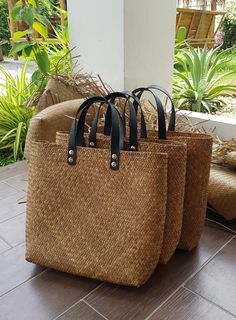If you have ever wondered whether or not bio bags are really compostable, then you've come to the right place! Here, we'll take a look at why they aren't, and why you may want to consider switching to other types of bags. We'll also discuss some alternatives for those of you who need to keep your food fresh for longer than a few days.
Food storage bags
Bio bags for food storage are compostable, making them a great choice for your household. They are also perfect for on-the-go lunches and snacks. They are sturdy, lightweight, and are ideal for storing all types of foods.
BioBag products are made from plants and are 100% compostable bags. These products are certified by the Biodegradable Products Institute (BPI). They are also a good alternative to plastic packaging.
These bags are a great alternative to traditional plastic zipper bags. They are compostable, resealable, and designed to break down in commercial composting facilities.
This makes them a better choice for your trash day. They are easy to use, and are tough enough to avoid tears. They are also recyclable. They can be dropped into your Lomi composter, which will degrade the bag in less than a day.
The BioBag Resealable 1 Quart Food Storage Bag is a sturdy, resealable bag that is 100% compostable. It is made from plant starch and sustainably sourced palm oil free materials. It has a resealable closure that is BPA free.

Garbage bags
There are many claims that bio biodegradable garbage bags are "recyclable". Some claim that they are oxo-biodegradable, which means they will break down in the sun. Others claim that they are made from renewable biomass, which is better for the environment.
While these claims can be true, there are still questions as to whether these products actually degrade at the rate claimed. The best way to determine whether or not a product is compostable is by checking the manufacturer's certification.
If a product has been third-party certified, there is a better chance that it will actually biodegrade in a timely fashion. However, most consumers don't know how to go about it.
The most important fact to know is that it takes time for biodegradable bags to degrade. The process is based on the weather, humidity, and biological activity. If you live in a cold climate, it could take more than three years for your compostable trash bag to break down.

Industrial compost facilities
It might seem like a no-brainer to use Bio Compost Bag for garbage. They are made from compostable materials, and they are supposed to biodegrade. They even come with a label to confirm that. But does that really make it a good idea?
In many cases, the answer is no. While some plastics can be composted, not all packaging can.
Commercial composting is a process in which a large volume of waste is processed into a high-quality compost. It is sold to local communities and garden centers. It can also be used for soil remediation. It's a greener, healthier way of disposing of waste.
The key difference between industrial composting and home composting is the level of control and sophistication. At an industrial facility, a precise composting strategy is followed to ensure the proper breakdown of organic material. The amount of carbon and nitrogen in the organic materials is monitored, and a controlled temperature and pressure environment is used to achieve the required heat for complete decomposition.
Upcycled brown paper bags
Brown paper bags are compostable, as long as they are made from paper that has been recycled. This can be a great alternative to plastic bags, and they also make a nice addition to a compost bin.
It is important to use your paper bags in the correct way, as they need to be clean and free of contaminants. Some paper bags are coated with a thin layer of metal or plastic, which means they are not suitable for composting.
If you have a composting bin at home, you can fill it with kitchen scraps. These should be compostable, as they contain cellulose fibers that are easy for bacteria to eat. You should also add cardboard and grass clippings. These are excellent sources of carbon.
If you are going to use paper bags in your compost pile, you should shred them before putting them into the compost. The large pieces can cause problems with the overall integrity of the compost. It can also prevent oxygen from moving through the pile.





